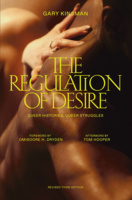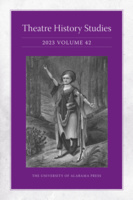The Regulation of Desire, Third Edition
Queer Histories, Queer Struggles
The Lifestyle Medicine Toolbox
Mind-Body Approaches for Health Promotion
This practical resource provides professionals with a holistic toolbox on how to promote integrative lifestyle medicine with their clients. Focussing on the 6 primary lifestyle medicine factors of nutrition, exercise, sleep, stress, addiction and social connectedness, it promotes sustainable mind-body healing with actionable advice and strategies.
The Awesome Autistic Guide to Other Humans
Relationships with Friends and Family
This awesome guide provides practical tips and guidance on how autistic young people can form positive friendships and understand all the relationships in their lives!
The Awesome Autistic Guide to Feelings and Emotions
Finding Your Comfort Zone
This awesome guide provides practical tips and guidance on how to regulate emotions and discover their comfort zone.
The Awesome Autistic Guide to Being Proud
Feeling Good About Who You Are
This awesome guide introduces autistic kids to the autistic community and promotes positive self-image by encouraging them to take pride in their identity and find their own place in the community.
The Autistic Survival Guide to Therapy
Steph Jones uses her professional and lived experience to explore everything she wished she had have known about being autistic and in therapy. Covering everything from red flags, the often asked “is it autism or trauma?' and ableism in therapy, setting boundaries and investigating how therapists can become neurodivergent affirming.
Roots and Rebellion
Personal Stories of Resisting Racism and Reclaiming Identity
From the winners of the JKP Writing Prize, this anthology of stories speaks to the humanity and bravery found in resistance against racism and the various ways it can manifest. Spanning generations, cultures, and communities, these prize-winning personal essays explore what it means to reclaim identity through personal, heartfelt resistance.
Reaching All Writers
A Pedagogical Guide for Evolving College Writing Classrooms
Reaching All Writers brings together decades of writing studies experience, research, and scholarship to help organize first-year writing courses around inclusive teaching practices and foundational concepts that support disciplinary learning for all college writers, including students who have been excluded from more selective higher-education institutions.
Power, Prayers, and Protection
A Cultural History of the Utah San Juan River Navajo
Just Call Me Rae
The Story of Rae O. Weimer, Founder of the University of Florida College of Journalism and Communications
Autistic and Black
Our Experiences of Growth, Progress and Empowerment
Kala Allen Omeiza explores what it means to be Black and autistic in this insightful and vitally important book. With contributions from across the world, this book dives deep into topics from BLM to anti-Black racism and mental health negligence.
Architecture of Human Living Fascia
The Extracellular Matrix and Cells Revealed Through Endoscopy
Yaguareté White
Poems
Yaguareté White is a lyrical exploration of Paraguayan whiteness, or white Latinidad, and what it means to see through a colored whiteness, with all of its tangled contradictions. Diego Báez’s poems reconcile the incomplete, contradictory, and inconsistent experiences that reside between languages, nations, and generations.
Theatre History Studies 2023, Vol. 42
Samson Raphael Hirsch's Religious Universalism and the German-Jewish Quest for Emancipation
An account of how Rabbi Samson Raphael Hirsch promulgated an inclusive vision of Judaism in the context of advancing the civic equality of German Jews in the nineteenth century
Rim to River
Looking into the Heart of Arizona
A sharp examination of Arizona by a nationally acclaimed writer, Rim to River follows Tom Zoellner on a 790-mile walk across his home state as he explores key elements of Arizona culture, politics, and landscapes. This book is essential reading for anyone interested in learning more about a vibrant and baffling place.
Border Economies
Cities Bridging the U.S.-Mexico Divide
Using a combination of economic history and analysis, Border Economies explores how the location of U.S. and Mexican communities on the border are shaped by forces that originate on the other side.
Apalachicola Valley Archaeology, Volume 1
Prehistory through the Middle Woodland Period
The definitive archaeological record and what is known or speculated about the ancient Apalachicola and lower Chattahoochee Valley region of northwest Florida, southeast Alabama, and southwest Georgia
An Introduction to Literary Debate in Late Medieval France
From Le Roman de la Rose to La Belle Dame sans Mercy
This volume immerses readers in a debate tradition that flourished in France during the late Middle Ages, focusing on two works that were both popular and controversial in their time and the discussions they sparked surrounding questions of women’s agency, love, marriage, and honor.
Queer Newark
Stories of Resistance, Love, and Community
Queer Newark charts an alternate history of LGBTQ life in America where working-class people of color are the central actors. Uncovering the sites and people of Newark’s queer past in bars, discos, ballrooms, and churches, these essays reveal how violence, poverty, and homophobia could never suppress joy, resistance, love, and desire.


















